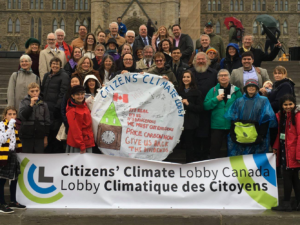
With heat extremes removing all doubt about climate change, let’s deal with the cause: Fossil fuels
By Steve Valk
With record-shattering heat making headlines around the world, this is a good time to connect some dots to see what’s behind the weather extremes affecting people this summer and what needs to be done to keep things from getting worse.
Record heat
The most obvious impact at the moment is the sky-high temperatures putting July on pace to be the world’s hottest month on record. How hot? In parts of Arizona, where temperatures have risen to about 110° Fahrenheit for more than a month, people have been hospitalized with serious burns that occur simply from falling down and having bare skin come in contact with surfaces, like asphalt, that reach as much as 180º F.
In addition to the heat dome sitting over the southern U.S., other heat domes around the Northern Hemisphere are pushing up global temperatures. A heat dome over North Africa is affecting European countries around the Mediterranean Sea, with hot, dry conditions contributing to massive wildfires in Greece. Last year, more than 61,000 people died in Europe from heat-related causes. In southern Iran, a combination of actual temperature and high humidity created an astonishing heat index of 152° F. China this summer hit an all-time high of 126º F.
Meanwhile, oceans are heating up to disastrous effect. Off the coast of southern Florida, the water has heated up to hot-tub temperatures in the 90s and as high as 100. This type of heat will bleach the fragile corals in the region. As we get into hurricane season, warmer water will provide the energy for more destructive storms.
But wait, there’s more, and this one is really alarming. Scientists looking at data for the last 150 years associated with currents like the Gulf Stream that redistribute heat on both sides of the Atlantic now say this aquatic conveyor belt could shut down in the next few decades. The collapse of this conveyor belt, known as the Atlantic Meridional Overturning Circulation, raises the specter of ushering in a European ice age, a scenario depicted in the 2004 disaster film “The Day After Tomorrow.”
The Washington Post’s Sarah Kaplan explains how climate change is driving this threat:
Under Earth’s current climate, this aquatic conveyor belt transports warm, salty water from the tropics to the North Atlantic, and then sends colder water back south along the ocean floor. But as rising global temperatures melt Arctic ice, the resulting influx of cold freshwater has thrown a wrench in the system — and could shut it down entirely.
Given what we’re experiencing this summer, the reality of climate change is now undeniable. The tragedy is that we’ve wasted valuable time convincing ourselves that the threat was real enough to take effective action. In a recent interview with the Guardian, climate scientist James Hansen, who first alerted the world to this impending global catastrophe in the late 1980s, lamented the delay in responding:
[Hansen] said the record heatwaves that have roiled the US, Europe, China and elsewhere in recent weeks have heightened “a sense of disappointment that we scientists did not communicate more clearly and that we did not elect leaders capable of a more intelligent response.”
“It means we are damned fools,” Hansen said of humanity’s ponderous response to the climate crisis. “We have to taste it to believe it.”
The primary cause: Fossil fuels
Now that we’ve tasted it, it’s important to turn our attention to the chefs who cooked it up: The fossil fuel industry. “The Climate Crisis is in the main a fossil fuel crisis,” said “An Inconvenient Truth” filmmaker Al Gore in a recent interview with the New York Times. He had more to say:
“Fossil fuel companies are desperately trying to use their political and economic networks and their successful capture of policy in too many countries to slow down this transition. They don’t disclose their emissions. They don’t have any phase-out plan. They’re not committed to a real net zero pathway. They’re greenwashing. They’re performing anti-climate plotting.”
There’s little mystery as to what must happen in order to prevent climate change from making much of our world uninhabitable: Total phase out of fossil fuels as quickly as possible. And to watch commercials from the major oil companies, either on TV or online, one might get the impression that these corporations are at the forefront of efforts to reach net zero emissions by mid-century. But, as Kate Yoder wrote for Grist last fall, Big Oil is gaslighting us in their marketing efforts:
Well over half of Big Oil’s advertisements promote the message that they have embraced clean energy and emissions reductions, and other such “green claims,” according to a new report from InfluenceMap, a think tank based in London. Researchers found that BP, Chevron, ExxonMobil, Shell, and TotalEnergies spent an estimated $750 million last year to promote a climate-friendly image — and the report calls that “a conservative estimate.”
By now, anyone familiar with the #ExxonKnew revelations knows how the company realized decades ago that continued use of their product would have catastrophic consequences for the climate. Despite this knowledge, they funded campaigns to cast doubt on the science of climate change that, disastrously, impeded progress on national policies in the U.S. to bring down heat-trapping emissions. Oliver Millman at The Guardian reported earlier this year:
Armed with this knowledge, Exxon embarked upon a lengthy campaign to downplay or discredit what its own scientists had confirmed. As recently as 2013, Rex Tillerson, then chief executive of the oil company, said that the climate models were “not competent” and that “there are uncertainties” over the impact of burning fossil fuels.
Faced with today’s overwhelming evidence that climate change is indeed happening as a result of burning fossil fuels, Big Oil is shifting strategies from denial to delay, hoping to wring out every last dollar of profit by slowing the transition to clean energy and electrification. Check out this thinly veiled attack on electric vehicles from ExxonMobil where people, tethered to wires and cables, break free by driving a gas-powered vehicle. InsideEVs has more on this.
In a recent story in The Guardian, Dharna Noor lays out the duplicitous maneuvering of Big Oil, making pledges to reduce emissions to keep government regulators at bay and then walking back those pledges when opportunities arise to cash in.
Climate-fueled extreme weather persisted through spring and summer. But fossil fuel companies have only doubled down on their oil- and gas-filled business models. Shell promised to cut oil production by 20% by 2030, but then this year said it already met that goal by selling off some operations to another oil company –thereby not reducing emissions in the atmosphere. BP has also expanded gas drilling. And Exxon’s CEO, Darren Woods, told an industry conference last month that his company plans to double the amount of oil produced from its US shale holdings within the next five years…
Timmons Roberts, professor of environment and sociology at Brown University, provided Noor with an apt analogy of what the oil industry is doing.
To foster a real energy transition, said Roberts, leaders must stop believing that energy companies will voluntarily change their business models. He likened politicians’ behavior to the gag in the Peanuts comic, wherein Charlie Brown repeatedly attempts to kick a football held up by Lucy, even though she always pulls it away and lets him fall over.
One major newspaper is calling out Big Oil for their wanton behavior at humanity’s expense. In an editorial, the Los Angeles Times suggests it’s time to give up the notion that fossil fuel companies have any intention of being part of the solution.
Too many powerful people in government, business and civic organizations have clung to the fantasy that some of the most powerful and destructive companies in history would eventually face reality and transform on their own initiative into clean and sustainable operations.
But the last year has shown they are committed to profiting from pollution. While major oil companies post record profits, they are retreating on their climate pledges, lobbying to reverse climate policies and trying to derail the switch to electric vehicles.
What is so disheartening is that, having known that their product would render the planet uninhabitable for many of its people, the giants of oil and gas had the opportunity to transform their business model but chose not to. They had the resources to pour massive amounts of capital into wind, solar and energy storage to evolve into the energy companies of the 21st century that could alter the self-destructive course humanity is set on.
Solutions
It is now readily apparent that help from the fossil fuel industry will not be forthcoming, at least not voluntarily. Governments must take the steps that will force their hand to choose between a business model that preserves a livable world or one that quickly becomes extinct, like the dinosaurs whose carbon-rich remains they harvest.
The biggest step governments can take is to hold polluters accountable for the damage they’ve done by imposing a steadily increasing fee on the carbon content of their product. If the bulk of that revenue is given to the people, most households — especially poor and middle-income — would see no economic impact from the carbon fee. In fact, many would see a net gain. Citizens’ Climate Lobby has an excellent proposal for pricing carbon and distributing the revenue to households.
Faced with the reality that businesses and consumers would start to see clean energy and electric vehicles as preferable for being comparatively cheaper, the fossil fuel industry would provide more than lip service toward efforts to rein in carbon emissions. They would make major investments in clean technologies to truly transform their businesses and become part of the solution instead of the main problem.
To ensure that a carbon price has the desired effect throughout the whole world, it is essential that it be applied everywhere. That’s why the International Monetary Fund has proposed an international carbon price floor (ICPF) between $25 and $75 a ton, depending on the country’s level of development. CCI supports a fair, cooperative, graduated ICPF and will work to see it implemented.
One more important step to phase out fossil fuels is the initiative to enact a Fossil Fuel Non-Proliferation Treaty. The proposed treaty calls for:
- Ending the expanding fossil fuel production.
- A fair phaseout of fossil fuel production, “where nations with the capacity and historical responsibility for emissions transition fastest, providing support to others around the world.”
- Fast tracking the adoption of clean energy and economic diversification away from fossil fuels so that no worker, community or country is left behind.
CCI has endorsed the treaty and is working to get other institutions, like the World Bank, to endorse the treaty, too.
The extreme, record-breaking heat this summer — and weather-related disasters associated with it — should put to rest any doubts about the existence of climate change. We know that the principal driver of climate change is the burning of fossil fuels, which must end with all deliberate speed if we are to have any chance of warding off catastrophic consequences. We have the solutions — solar, wind, geothermal, energy storage and electric vehicles — for ending our dependence on oil, gas and coal. With time running out, there are no excuses to delay this transition.
The fossil fuel industry has demonstrated time and again their unwillingness to engage in good faith on the climate issue. Let’s stop playing Charlie Brown to their Lucy and take actions that will make their product obsolete.








